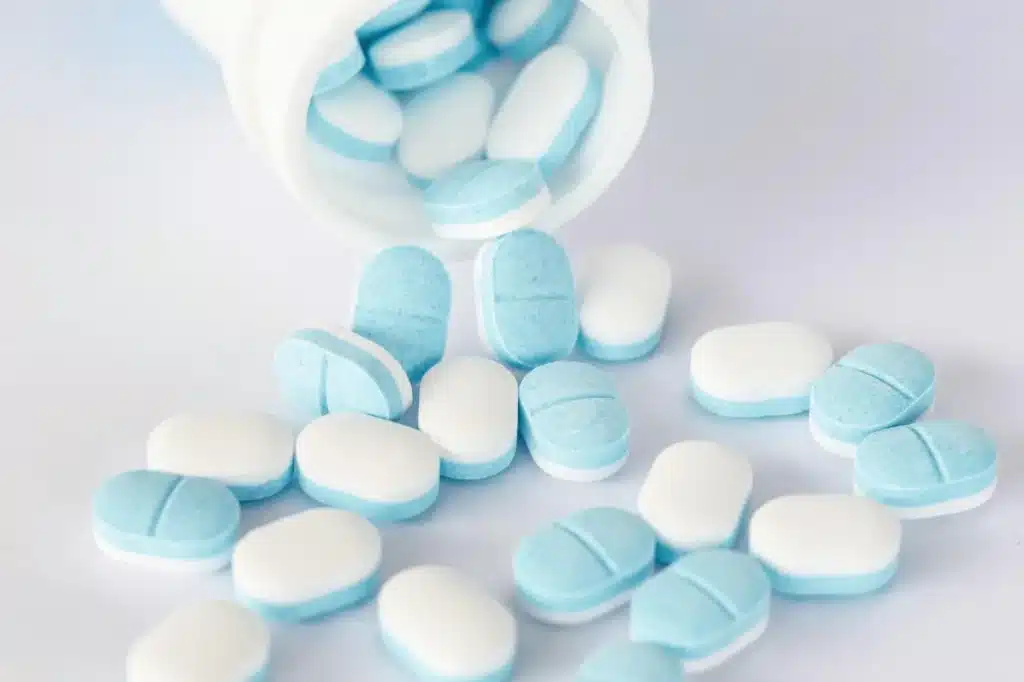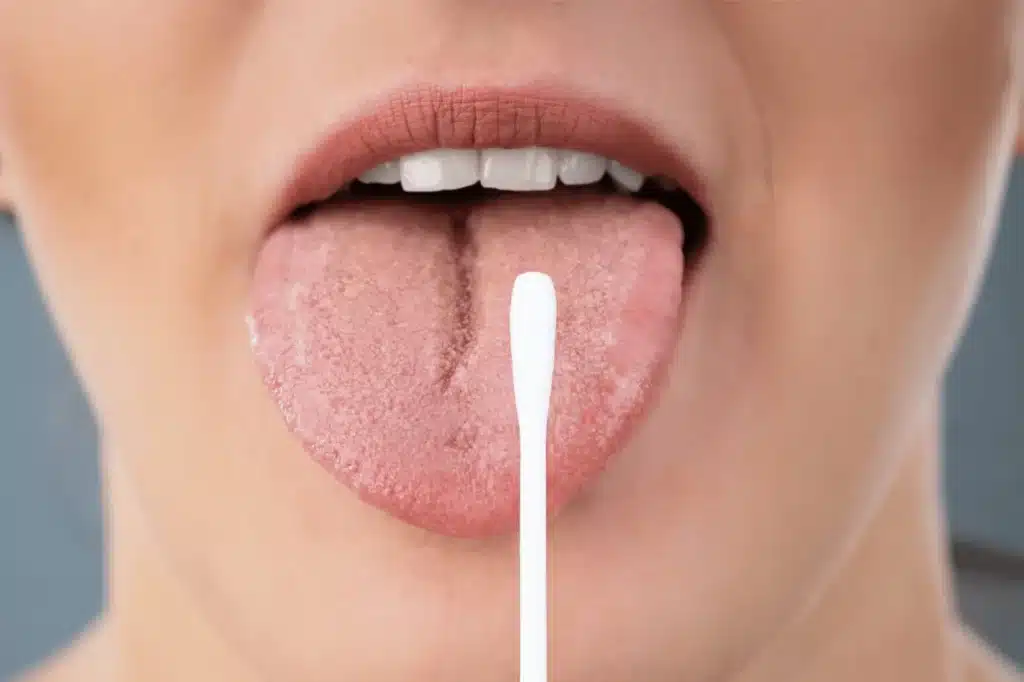Saliva, often overlooked, plays a pivotal role in dry mouth and dental health. This article explores saliva’s significance, dry mouth condition (xerostomia), and how it impacts overall dental health. Understanding these factors is essential for maintaining a vibrant and healthy smile.
Causes of Dry Mouth
Dry mouth, or xerostomia, can stem from various sources, impacting your dental health differently.
Medical Conditions
- Certain medical conditions, such as diabetes, can diminish saliva production, resulting in dry mouth.
- Radiation therapy for head and neck cancer can also damage salivary glands, leading to xerostomia.
Medications
- Numerous medications, including antihypertensives, antidepressants, and antihistamines, list dry mouth as a side effect.
- These drugs can disrupt salivary gland function, contributing to the problem.

Lifestyle
- Smoking and tobacco use can lead to a dehydrated mouth, affecting saliva production and gum health.
- Alcohol and caffeine consumption can dehydrate the body.
Symptoms
Common signs that indicate dry mouth include:
- Persistent dehydrated feeling
- Cracked lips
- Difficulty chewing or swallowing.
- Bad breath (halitosis)
- Burning sensation or sticky feeling in the mouth
Dental Consequences
The impact of a dehydrated mouth on dental health cannot be underestimated. Saliva, often taken for granted, plays a pivotal role in maintaining oral well-being.
Saliva is nature’s defense against tooth decay. It washes away food particles, neutralizes harmful acids, and provides minerals that strengthen tooth enamel. Without sufficient saliva, this protective shield weakens.
In a dry oral environment, saliva’s cleansing and buffering actions diminish. Harmful bacteria thrive in these conditions, producing acids that erode enamel and lead to cavities. Those with xerostomia are more susceptible to dental caries.
Saliva also helps control the growth of bacteria in the mouth, preventing gum disease. With a dry mouth, the imbalance tips for harmful microbes, increasing the likelihood of gingivitis and periodontitis.
Diagnosing Dry Mouth
Identifying and addressing dehydrated mouth is essential to mitigate its dental consequences.
Diagnosis
Dentists consider symptoms, medical history, and medications when diagnosing dehydrated mouth and dental health issues. They may also perform a physical examination of the mouth and salivary glands.
Salivary Flow Rate Test
Salivary flow rate tests measure the amount of saliva produced in a specific time. Other assessments may include pH testing to evaluate saliva’s acidity and swabbing to check for signs of infection.
Root Causes
Determining the root cause of a dehydrated mouth is vital for effective treatment. It may be due to medications, medical conditions, or lifestyle factors. Identifying these causes guides tailored interventions.
Treatment
Saliva is important because it helps keep your mouth moist and helps with things like eating and talking. Here are some ways to treat a dehydrated mouth:
Drink More Water:
The easiest thing you can do is drink more water throughout the day. It helps keep your mouth wet and can make you feel better.

Chew Sugarless Gum or Suck Sugarless Candy:
Chewing gum or sucking on candy that doesn’t have sugar can help your mouth make more saliva.
Use Moisturizing Mouthwash:
You can buy special mouthwashes that are made to help with dry mouth. They can make your mouth feel less dry.
Avoid Caffeine and Alcohol:
Drinks like coffee and alcohol can make your condition worse, so it’s best to limit them.
Avoid Spicy and Salty Foods:
These foods can irritate your mouth, so try to eat milder foods instead.
Use a Humidifier:
If the air in your home is arid, using a humidifier can add moisture to the air, which can help your mouth stay wet.
Talk to Your Doctor:
Sometimes, dry mouth can be caused by certain medications or health conditions. If that’s the case, your doctor can help you figure out a solution, like changing your medicine or treating the underlying condition.
Preventing Dental Issues
Maintaining oral health with dry mouth and dental health challenges requires a proactive approach. Here are key strategies:
- Sip water throughout the day.
- Use alcohol-free mouthwash
- Schedule routine dental visits
- Work with your dentist to create an individualized oral hygiene routine.
- Avoid tobacco and alcohol
- Using a humidifier at night
- Use medications that can relieve dry mouth
Conclusion
Hope now you know the root causes of dry mouth. Take preventive measures to avoid dental issues and maintain oral and dental health.


